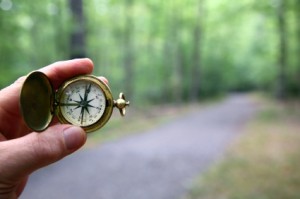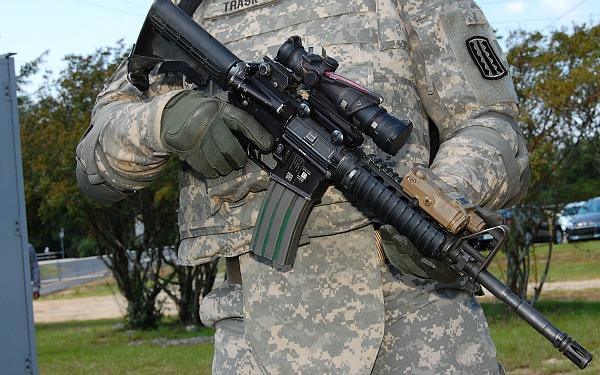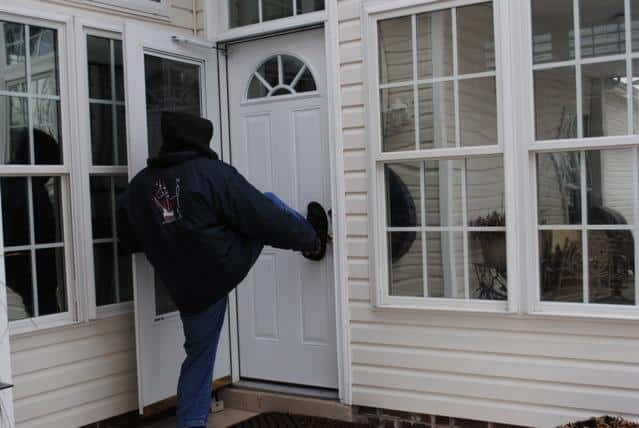Having the right gear is extremely important, but what is even more crucial is having the knowledge to use it properly. With everything you buy, it is important to familiarize yourself with your gear. For instance, if you buy camouflage, it is important to consider your particular region. If you live in the desert, then camo tailored to conceal you in a temperate zone would be useless.
 The most important thing you need to consider before you even buy your first match is what do you want to do in the event of a regional or national catastrophe? To break this down simply, the answer to this massive question boils down to two possible options. You can either stay in your home or in someone else’s home in your local community, or you can evacuate. This decision will influence 95 percent of the gear that you will be buying, down to the types of knives that you will need.
The most important thing you need to consider before you even buy your first match is what do you want to do in the event of a regional or national catastrophe? To break this down simply, the answer to this massive question boils down to two possible options. You can either stay in your home or in someone else’s home in your local community, or you can evacuate. This decision will influence 95 percent of the gear that you will be buying, down to the types of knives that you will need.
The decision to stay in your home is less preferable, because homes are almost always a target. If your area is undergoing riots, mass poverty, or oppression, you will have to keep out thieves, looters, and perhaps even foreign and domestic military personnel. Usually, simple civil negotiation does not work in these scenarios, and the threat of lethal force is almost always necessary. However, if a family member is infirm or injured and cannot evacuate, then staying may be your only choice.
If you are able to evacuate, then you will want to have your new location planned well in advance. Your best option is to have a home already established before you even leave. Rural zones tend to be the best places to which you will want to go for several reasons:
- Rural zones tend to be populated by farmers, hunters, and other wilderness-oriented peoples. These peoples tend to be more “law abiding,” have higher moral standards, and are able to provide for themselves from the land. This means that you will not have as much of a problem with looters and thieves.
- If you are the object of government oppression, operations are usually carried out in cities during modern campaigns. If you run to a rural zone, you will experience less attention, as it requires more resources to move in and patrol the area. Everything is more expensive for a military in a rural area, as it tends to stretch their supply lines.
- If you evacuate, then few people will know who you are, allowing you to craft a secondary identity. Also, there will be less of a chance that you will be asked to provide your papers.
- Last, it will be much easier to acquire resources without currency, as you will be able to hunt and fish unmolested, provided that you remain unseen (which will be easier in a rural zone) to the owner of the property. A better option will be to receive the permission from the owner, which tends to happen quite often, as this is a hunting practice in most parts of the U.S.
Hunker Down
If you decide to barricade in your home, then there are a few things that you will most certainly need. It will not be cheap, but if you can make your home “self-sustaining,” then you might be able to weather the times.
Water: The Most Crucial of Survival Elements
If you do not live near a reliable water source (within walking distance of your property), then you may not be able to live in your current home and may need to relocate to the home of a friend or family member that is nearer to a water source. This is what you will need to purify that water.
- Gravity fed filtration device – This is crucial, especial considering the scenario. The Iraq War has shown us that an invading army will immediately knock out the power. This will almost instantly shut off the water supply, and even stop sewage systems from operating. If the sewage system backs up, not only will the population not use the necessary facilities, but also they may be forced to construct poorly built, makeshift latrines outside, which will soon cause run-off to seep into streams and rivers. You have to have the capability to filter out the dangerous toxins and biologics.
- Enough filters to last at least five years – First, calculate how much water you will use, and then calculate how many filters you will need for five years. Most modern wars, conflicts, and civil disasters only last about this long until there is a movement back to relative harmony.
- Make a proper latrine as far from your living space as possible— This will ensure that you do not contaminate your home. Unless you have the proper facilities, do not attempt to use the waste as a renewable resource.
Food
In urban zones, you will not be able to hunt. If you have no currency or very little of it, you will only be able to live for so long. Your best option is to find a way to barter. Try to predict what the population will desperately need at that time and that comes cheaply today. This way, you can stock up now, and use it as a barter item for food when you need it.
There are other options where you can buy freeze-dried food that will last for years. If you have the money, this is the best resource you can utilize. Keep this an airtight secret, as you may be forced to defend it with your life.
Basic Tools
It is absolutely crucial that you that you buy a complete set of non-electric hand tools, and it is important that you know how to use them. This will be extremely valuable if you have to build a latrine, fix the water filter, build a food storage facility, construct anti-theft measures, build a wood stove for heat and cooking, and even fashion weapons. Being a “handy-man/woman” may save your life and the lives of your family members.
Bugging Out: Basic Gear
These are the first and foremost things that you will want to keep in mind while considering your “bug-out” gear:
- Think Light – Keeping your gear light and taking only what you will need means that you will be mobile, and you will be able to keep your gear with you more often. Mobility is key in an evacuation, and light gear will allow you to be far more prepared while on the move. During an evacuation, you cannot move fast enough and open up enough miles between you and your starting point.
- Think Durable – If you only buy extremely durable gear, then that will mean that you will have to replace fewer items in the future, and it will work with higher efficiency for a longer period of time.
- Think Multipurpose – Having tools and gear that serves more than one purpose will allow you to have a lighter pack, and it will be easier to organize. For instance, you can buy needle-nose pliers, a folder knife, a screwdriver, and a can-opener; or you can buy something like a Leatherman multi-tool, which has all those tools on one single device.
Whatever you do, do not buy military surplus clothing. This will make you “stick out” in the crowd. If you look like a combatant, then you will be hunted. Do yourself a favor and wear hiker clothing that has a solid color that might blend into rural surroundings. You will want to look as harmless as possible.
Shelter is also extremely important for warmth in the winter, shade in the summer, and overall morale of the camp. If you can, use a survival hammock. Hammocks will keep you off the ground, away from the bugs and water, and will keep you warm by elevating you from the warmth-sapping ground. Also, they are considerably lighter than a tent, because they have no poles. If you have to use a tent, then buy a hiking quality tent that is “3+ Season” rated. This should keep the weight down, and allow for higher durability. Be sure not to construct your tent in a possible waterway, as it will wash out your camp if a storm approaches at night.
Be sure to pack waterproof matches, lighters, and magnesium flint or fire steel. Having all of these options will give you peace of mind and will work when one of them may not. Also, lint from the collection screen to a dryer provides an excellent tinder bundle, as do cotton balls. If these remain dry, you can ignite them from one or two strikes from the fire steel.
Last, by all means, waterproof your pack. If moisture gets in, it may destroy some of your gear from rust, fungus, and basic disintegration. Also, nothing starts off a bad day like putting on a wet pair of clothes.
©2012 Off the Grid News










